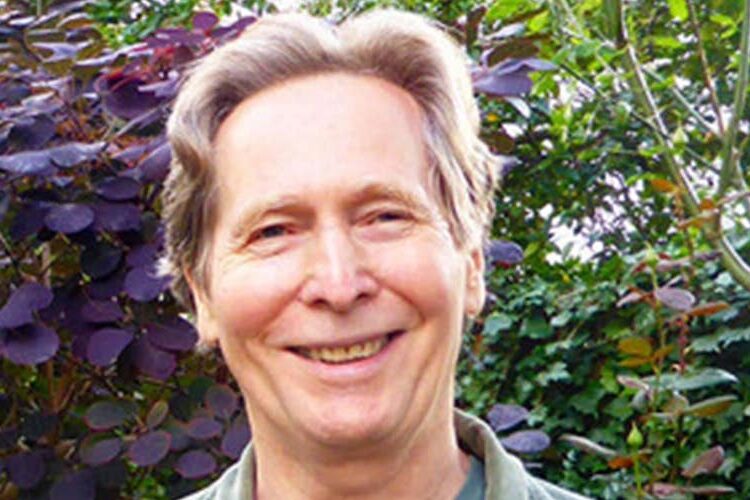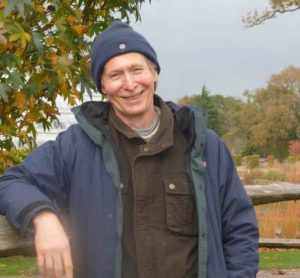
Introducing Brian Murphy: Psychedelic and Psychospiritual Integration Therapist
Frshminds had the opportunity to learn about the work of Brian Murphy, a New York City psychedelic integration therapist, and how quickly integration is becoming recognized as an effective and powerful healing modality to treat a variety of mental health conditions such as depression, anxiety, trauma, and more. Brian provides healing and psychedelic integration therapy using various techniques such as holistic psychotherapy to help those managing addiction and psychospiritual development. This is what he had to say to Frshminds about his work:
What sparked your interest in providing psychedelic integration to your patients?

It was by accident. I was working in a needle exchange doing street-side counseling with people using drugs, and at the same time I had a private practice in the evenings. One of my private practice clients had an underground ibogaine treatment that got him off heroin, and I became interested in the visionary part of the psychedelic experience, especially since it was subjects like dreams and visionary experiences that got me interested in therapy in the first place. I got to meet his ibogaine provider, we hit it off, and before long I was working with a lot of people post-ibogaine. That branched out into ayahuasca, mushrooms, MDMA, bufo – the usual suspects. Now almost all of my clients have taken a psychedelic or are actively processing an experience, and I’m very glad for this, because in a world full of elevators, traffic lights, time pressures and one way street signs, we need mystical experiences and timeless moments more than anything else.
What makes your practice special?
Everybody’s practice is special. What I do in mine is invite the person to go into what William Blake called the Holy Imagination, and explore their inner regions, their body sensations, their living metaphors, and the different parts of themselves – these parts often show up as semi-autonomous regions, like the inner critic, the inner child, our compulsions and so on. It’s a direct interaction and it can be very healing. When someone takes a psychedelic drug these same metaphorical and spiritual worlds can invite you in to the most intense exploring, processing and learning. With the doors somewhat blown open, consolidation and continued change on the imaginal level is an exciting prospect. If you think you work is done when the drug wears off, you are probably in for a surprise.
How do you see psychedelic therapy evolving in the future?
I’m worried for psychedelic development in the future. It is about to be taken over by corporations and by men in white coats (mainly men at this point, anyway). We in the West industrialize everything, that’s the most powerful medicine we have, and right now it’s probably stronger than we are.
However, this is also a wonderful opportunity for people to create medicine circles that are not controlled by finance and conformity. These places will not be funded by venture capitalists and the profit motive, and they won’t be medicalized. Such places will combine the artist with the doctor, with the spiritualist. Music, art, spoken word, and space design will be at the forefront. Space design is so important – and exciting. Think of Stonehenge, Eleusis, and the old gothic cathedrals – people built fantastic spaces for transformation of one kind or another in the past, and we can too.
Psychedelics are the most malleable things on earth – note how the QAnon shaman was not hugging trees or telling us that we are all one. Psychedelics can be used as the new mental health wonder drug to reinforce our conventional understanding of wellness and health – part of our mental shackles – or they can help in our utter transformation. My guess is that they will do both. I’m very glad psychedelics are here, and I hope they will give the snowglobe of the modern mindset a good shaking.
What’s the one piece of advice you would offer to patients considering psychedelic integration to help them manage their mental health?
For people contemplating a psychedelic, I remind them that these drugs are an adventure, in the most traditional sense of the word. I think of The Lord of the Rings, where the hobbits left the safe confines of the Shire to wander in a wide world that contained wonderful things and terrifying things. There are elves out there, and there are also orcs.
A psychedelic journey is by definition unpredictable, it may be wonderful, it may be frightening, it may be both at the same time, and it might also just be a bust. You might be disappointed. We cannot portray these drugs as having measurable healing effects as far as any individual goes, even if real differences do occur for aggregates of people. Too many people go into them with a promise and an expectation of healing and wonder what is wrong with them if it doesn’t happen. When there’s too much hype, they can feel guilty, confused and more worthless than before. Well, there’s a million factors involved, including how many times you need to take the medicine to make progress, and how heavy an ancestral burden you are carrying. It’s really important to temper you expectations to an experience that is not easy to predict.
My advice, especially for people who resolved to go on a journey for their first or their second journey, is take the adventure adventurously, go in with an open mind and an open heart, drop your expectations, and have a strong intention but hold it very lightly, because the medicine may have something quite different in store for you.
What are the most remarkable changes you have seen in patients who have leveraged psychedelic integration to manage their mental wellness?
I wonder what ‘mental wellness’ is. Is it a thing that exists outside of a textbook? Do we maintain our mental hygiene by washing our mental hands?
I look more for lightness of heart, fullness of heart, and joy at our simplest sense impressions, like staring at a tree or taking a sip of coffee in the morning. Those are wonderful goals to have. We don’t need much for our happiness, and yet we are tied in many vicious knots that restrict our freedom. I have seen many people bathe in that freedom and had their worlds rocked by psychedelics – but in a good way. I co-lead a psychedelic support group where people talk about such things every week, and I hear people’s wonderful stories of visionary travelling and transformation in many one-on-one conversations. People meet their ancestors, people let go of old burdens through tremendous shaking and shivering of their bodies, people get to understand at the cellular level that love is the creator. The trouble is, we have around 30 trillion cells, and it seems to take a lot of time for them to get the idea.
What challenges do you see for further integration of psychedelic-based therapies into more mainstream health care?
What strikes me here is how many people today are suddenly taking psychedelics and cannabis as a given for the age moving forward. It’s an extraordinary turnaround, yet when I worked in the needle exchange I met many people who had spent years in jail for possession of cannabis, and many more are still in there today, while the rest of us are getting enlightened.
We really do struggle with our relationship with consciousness in this culture, although the laws against drugs were for decades more an expression of racism and fear of genuine democracy than anything else. Now at least we appear to be moving into an era where we have a chance to explore our beingness without a fear of sirens in the background, and that can only be a good thing. In terms of the medical profession, I’m sure it can only help that there will soon be many more people helping others let go of some of their burdens and becoming happier, brighter beings in this world. The challenge is that psychologists may be tempted to take it upon themselves to define the experience via diagnoses, treatment plans and various other templates.
Another huge concern is that the experience will be reserved for the wealthy and for those who confine themselves to boxes created by the health insurance industry. The poor people were always the holders of these medicines – think of the shamans like Maria Sabina who preserved these traditions of healing. Maria Sabina was the Mexican Mazatec healing woman who essentially introduced the West to psilocybin. She did her ceremonies in her little house, where researchers and hippies came to visit her, and she lived and died in extreme poverty. Now that the wealthy nations are discovering the power of these medicines, are they going to shut the poor out? I expect so. I’m sure a health insurance company is not going to take “longing for divine love” as a diagnosable condition, although in the end, it is the only condition we really have.
Learn More About Psychedelic Integration Therapy
- History of Psychedelic Integration Therapy
- Have You Heard of a Psychedelic Integration Therapist?
- What is Psychedelic Integration Therapy?
- Ana Holub: Forgiveness, Addiction Recovery and Psychedelic Integration
- Meet June Jackson: New Orleans Psychedelic Integration Specialist and Life Coach
- Psychedelic Therapist Scott Ross’ Insights on Integration Therapy
- Psychedelic Therapist Lynne Nardizzi, LCSW, Talks Psychedelic Integration
- Meet Gerard Artesona: Psychedelic Integration Therapist and Spiritual Guide
- Rima Danielle Jomaa: Psychedelic Integration Therapist and Mindfulness Expert
—
You can learn more about Brian’s practice on his website, and if you are looking for other psychedelic integration therapists in New York, you can find them on Frshminds.
Explore the potential of psychedelics in well-being by checking out our Ultimate Psychedelics and Mental Wellness Guide!

Comments